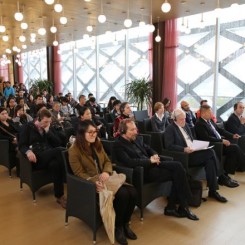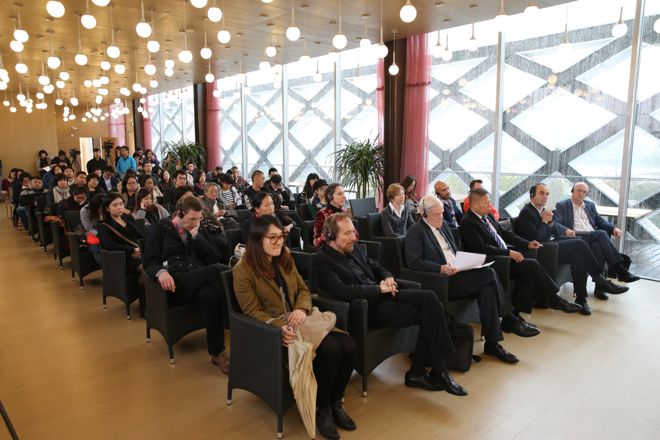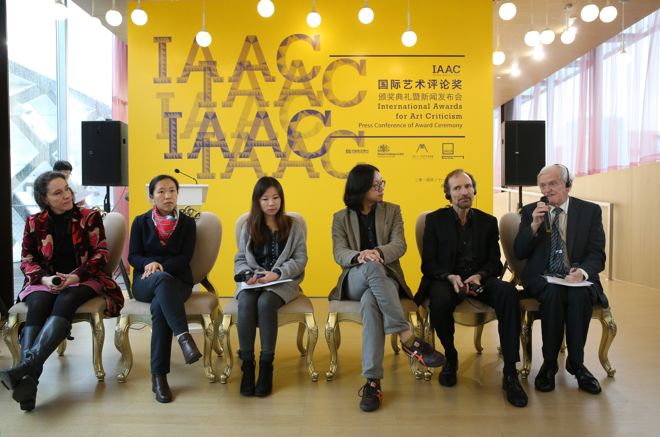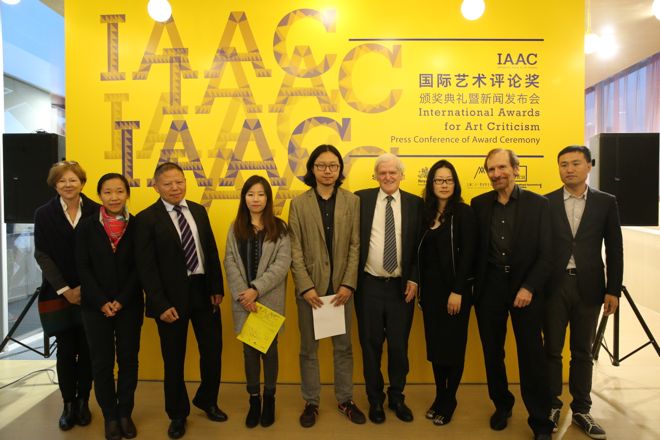The winners of the 1st edition of the International Awards for Art Criticism (IAAC) were announced on November 24 at the newly opened Shanghai Minsheng 21C Museum. With his essay “Language is Confrontation—Reflections sparked by Yan Lei’s solo exhibition ‘Bilder, die(nie) verschwinden’”, Su Wei won the 1st prize with a sum of 50 000 RMB (approx. 8100 USD) along with a fully funded two-week residency (flights and accommodation) in London in spring 2015. The two 2nd prize winners were Joobin Bekhrad with his “Sin City, on Iranian History, the Qajar Dynasty, Pop Culture” and Zhang Hanlu with her “The Impulse to Scribble: On Liu Chuang’s ‘Love Story’”, with both winning fully funded two-week residencies in either London or Shanghai.
The IAAC was co-organized by the AICA (International Association of Art Critics/Association Internationale des Critiques d’Art) and the Shanghai Minsheng 21C Museum—which also sponsored the prize—with the partnership of the Royal College of the Arts (RCA) and the UK branch of the AICA. Art criticism in English and Chinese were solicited from critics globally. The international jury was made up of J. J. Charlesworth (deputy chief editor of Art Review), Richard Vine (chief editor of Art in America), Rachel Withers (lecturer, and contributor to Art Forum), Karen Smith (art historian, and managing director of OCAT Xi’an), Lu Yinghua (curator, art critic, and writer), and Yi Ying (professor at the Central Academy of Fine Arts, Beijing). The essays were judged anonymously, and the two-day discussion reportedly resulted in heated debate.
Over 300 essays were reportedly submitted for the competition from around the world—with the proportion being roughly half in English and half in Chinese. 30 essays made the initial cut for the jury to deliberate on. It has been announced that these 30 essays would be published in print and online in spring 2015.
We have obtained permission to reprint the essays by Su Wei (the winner) and Zhang Hanlu (one of the second-prize winners), available here in both English and Chinese.




